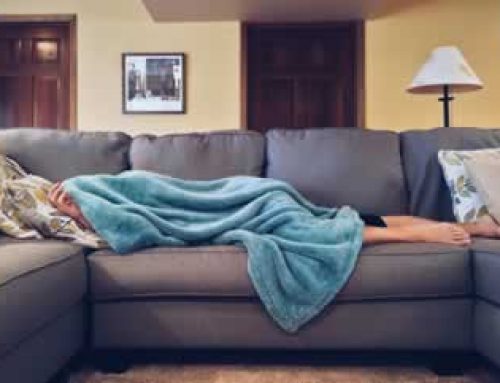Banking Sleep: Can You Really Do It?
Super Easy Ways To Manage Your Sleep Debt
Sometimes you know ahead of time that you’re going to be short on sleep – catching an early flight, a game running late, a big project deadline. Have you ever wondered if there was a way to combat the inevitable fatigue it’s going to cause by sleeping a little extra ahead of time? A way to stash a little extra away, stock up on sleep, store sleep, or bank sleep – somehow create a surplus that you can use later. It’s an alluring idea.
Researchers have asked this very question, but the news isn’t great – it doesn’t seem to be possible really. It does appear to deliver a minor placebo effect when it comes to physical exertion which could help athletes a bit, but it doesn’t prove particularly helpful for cognitive activities or relieving feelings of sleepiness.
In fact, catching up on sleep is very difficult overall. Sleeping extra on the weekend just isn’t enough to make up for days or weeks of not sleeping enough. Getting in 10 hours of sleep after a night of sleep deprivation only delivers improvements for about 6 hours. It takes multiple days, weeks, or even months to make up for sleep loss.
Here’s why
Adults need 7-10 hours of sleep a night for optimal health, but 1 in 3 of us don’t get it.
- 30% get less than 6 hours of sleep a night
- approximately 38% unintentionally fall asleep during the day
- about 4.7% fall asleep while driving
Sleep deprivation has a wide range of adverse effects including:
- Poor concentration, creativity, and problem-solving skills
- Weakened immune system and ability to fight off infection or disease
- Increased food cravings, weight gain, and the likelihood of developing type 2 diabetes
A healthy sleep schedule isn’t just about the number of hours you sleep; it’s about getting quality sleep so your mind and body can be restored.
Sleep Stages
Each night you go through a series of five sleep stages, repeating portions of them in cycles until you awaken in the morning. You start out in light sleep and work your way to deep sleep as you progress through the 5 levels of sleep. The time you spend in these stages needs to be appropriately balanced for a healthy sleep cycle.
- 75-80% NREM Sleep – stages 1-4
- 20-25% REM Sleep (Rapid eye movement) – stage 5
Stage 1 – Subtle, gradual transition from wake to sleep
Stage 2 – Period of light sleep, eye movement stops
Stage 3 – Start of Slow Wave Sleep (SWS)
Stage 4 – Deepest level of sleep (SWS)
Stage 5 – Rapid, darting eye movements (Phase of sleep when dreams take place)
The different sleep stages serve different purposes in maintaining your health and wellness.
- Stages 1 & 2 – Important for creativity, intuition, and emotion. Balances mood, calms the mind and relaxes the body. Similar brain waves are produced during meditation and deep creativity like daydreaming.
- Stages 3 & 4 – Important for physical recovery, memory, and the central nervous system. Regulates the immune system, supports healing and improves cognitive ability. Directly related to the amount of accumulated sleep over time.
- Stage 5 (REM) – Closely resembles your waking mind and is associated with dreaming. It consolidates experiences into memory and activates areas of the brain connected to learning and skill building.
Managing Your Sleep Debt
Having a good routine is essential to a good night’s rest and preventing you from going into sleep debt. Sleep debt is the difference between the amount of time you sleep versus the amount of sleep you need each night.
- When you go into sleep debt, your body needs to catch up on sleep gradually over a period of days, weeks, and sometimes months depending on how much sleep debt you’ve accrued and over how long of a time
- You need to spend more time in a deep sleep for stages 3 and 4 the longer you’re awake.
Regulating your sleep cycle is possible even if you don’t get as much sleep as you really need on a regular basis or can’t sleep on your normal schedule. Here are some tips to help:
- Wear dark glasses before sleeping to prime your body to fall asleep quicker
- Remove all light and noise from your bedroom – eye masks and earplugs work great!
- Keep the same bedtime and wake schedule even on your days off
You will gradually find a healthy rhythm for your sleep needs. The best way to manage your sleep debt is not to go into it in the first place. You really can’t store sleep nor can you make it up adequately.







































